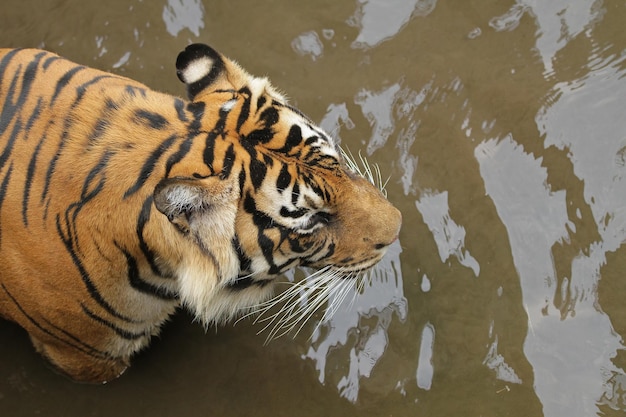Fascinating Facts about White Tigers

White tigers are not a separate species but rather a color variant of the Bengal tiger.
The white color in their fur comes from a rare genetic mutation that affects pigmentation.
These majestic creatures have blue eyes due to the absence of melanin in the iris.
White tigers are found predominantly in the Indian subcontinent.
They are known for their striking beauty and serve as a symbol of majestic power.
White tigers have a unique and distinct appearance that sets them apart from other tigers.
It is estimated that only around 200 white tigers exist in the world today.
Due to human fascination, white tigers are often bred in captivity.
White tigers are excellent swimmers and their large paws help them navigate through water.
They are known for their exceptional agility, capable of leaping up to 20 feet in a single bound.
White tigers are solitary animals and prefer to hunt alone.
Their diet consists mainly of large herbivores such as deer, wild boar, and buffalo.
White tigers have a powerful bite force that can crush bones with ease.
They are highly territorial and mark their territories with scent markings.
White tigers have a lifespan of around 10-15 years in the wild.
They are crepuscular animals, meaning they are most active during twilight hours.
White tigers are known to be excellent climbers, helping them reach their prey.
Unlike domestic cats, white tigers enjoy swimming and are adept at catching fish.
Fascinating Facts about White Tigers part 2
Their distinctive stripes act as camouflage, enabling them to blend into their surroundings while hunting.
White tigers have a keen sense of hearing and can detect the slightest movement.
They have a well-developed sense of smell, which helps them locate prey from a distance.
White tigers are incredibly strong, capable of bringing down prey much larger than themselves.
Unfortunately, white tigers have been subject to illegal poaching for their beautiful fur.
Conservation efforts are being made to protect and preserve the white tiger population.
White tigers are considered a symbol of conservation and a testament to the importance of biodiversity.
Their presence in the wild indicates a healthy and balanced ecosystem.
The white tiger’s coat color does not affect its ability to survive in the wild.
White tigers have a sociable side and communicate through a variety of vocalizations and body language.
They are skilled hunters, often using stealth and surprise to catch their prey.
White tigers can cover large distances while searching for food or a mate.
Their front paws are equipped with retractable claws, allowing them to maintain agility and precision while hunting.
White tigers have well-developed muscles, particularly in their hind legs for jumping and running.
They are known for their excellent night vision, which grants them an advantage during nighttime hunting.
White tigers are known to have a strong bond with their cubs, often caring for them meticulously.
Unfortunately, captive breeding has resulted in a higher number of health issues among white tigers.
White tigers are an integral part of Indian folklore and mythology.
They are often associated with strength, courage, and good fortune in many cultures.
In Hinduism, white tigers are believed to be the ride of the goddess Durga.
White tigers have been featured in various movies and books, captivating audiences with their beauty and charisma.
White tigers are protected by international laws and treaties to prevent their extinction.
They have a specialized adapted tongue which features rough papillae to effectively strip meat off bones.
Unlike their orange counterparts, white tigers are born with blue eyes, which later change to yellow or amber as they grow.
White tigers are known for their stealthy stalking techniques, slowly inching closer to their prey without being detected.
The gene responsible for white fur can lead to several genetic defects, making it crucial to maintain genetic diversity within the population.
White tigers are a testament to the wonders of nature, reminding us of the incredible diversity and beauty present in our world.

